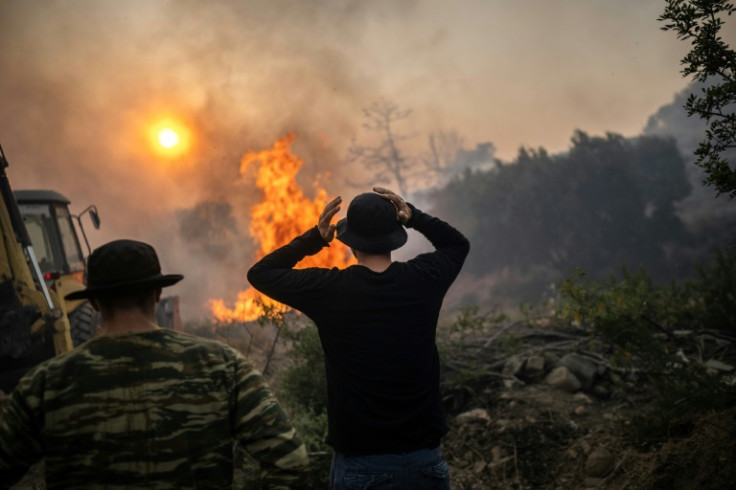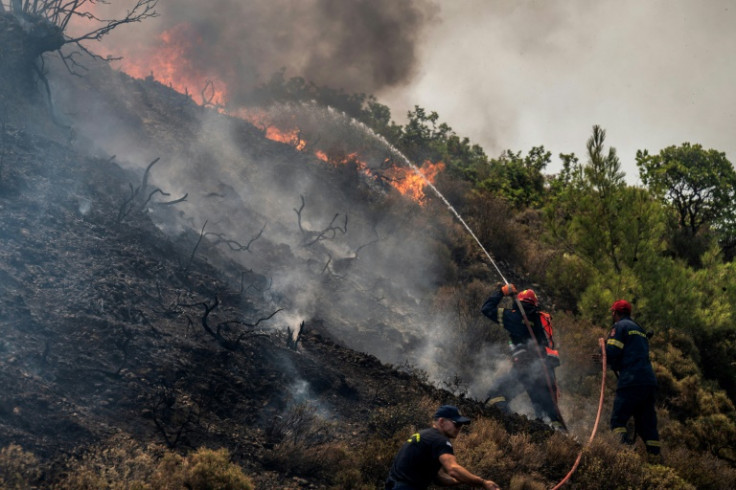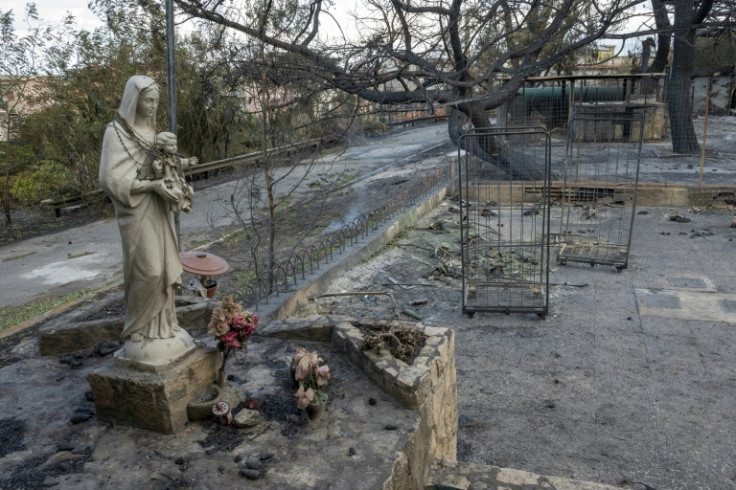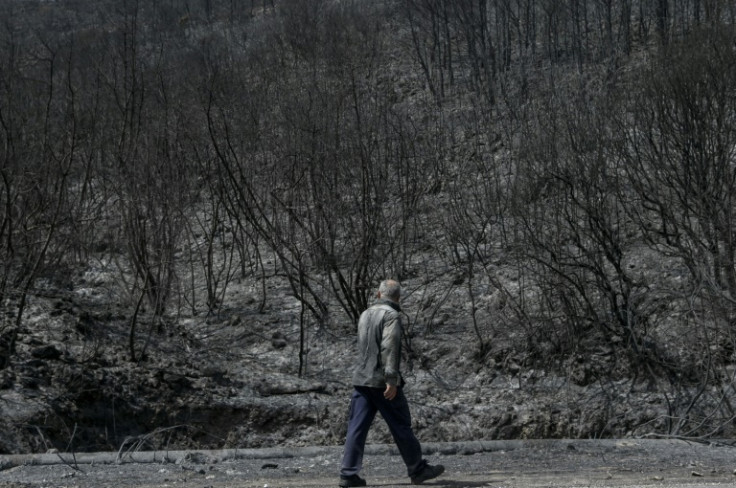New fires in heat-hit Greece force evacuations
Greece ordered evacuations on Wednesday for areas near two central cities after new blazes broke out during a punishing heatwave and as deadly fires hit the Mediterranean.

Greece ordered evacuations on Wednesday for areas near two central cities after new blazes broke out during a punishing heatwave and as deadly fires hit the Mediterranean.
Thousands of people have evacuated in the region this week as fires also flared in Croatia and Italy, and flames killed 34 in Algeria in extreme heat that has left landscapes tinder dry.
New blazes threatened central Greece Wednesday, prompting orders for locals to leave near the industrial centre of Volos and outside Lamia.
"Today is the most difficult day of the summer," fire department spokesman Ioannis Artopios told reporters in Athens, noting that crews were battling 90 fires Wednesday -- of which 61 had broken out in the last 24 hours.
One woman was found dead in a camper van in a coastal area near Volos, the fire department told AFP.

A cattle farmer was also found dead in one of the evacuated areas near Volos.
Five people have died so far in Greece's wildfire wave, including two water bomber pilots whose plane crashed on Tuesday, and a cattle farmer on the island of Evia.
"We are living through dangerous summer days, as are nine other Mediterranean countries," civil protection minister Vassilis Kikilias said in a televised address.
"Very high temperatures of over 40 degrees Celsius and intense winds have created fire fronts of many kilometres," Kikilias said, adding that crews were battling through "inconceivable fatigue."
Evacuation orders have been issued for five villages and communities near Volos, and four more in outer Lamia.
"It's hell here. There are four different fronts... stretching across a combined 10 kilometres (six miles)," Dorothea Kolindrini, a deputy governor from an area included in the orders, told state TV ERT.

Scientists from the World Weather Attribution group said this week the heatwaves that have hit parts of Europe and North America this month would have been almost impossible without human-caused climate change.
The European Union's climate observatory Copernicus on Wednesday said smoke emissions from wildfires in Greece have been the highest for this period of time in the last 21 years.
Greece has battled over 600 fires in the past 12 days, the government said Wednesday.
Temperatures were expected to hit between 43-46 degrees Celsius (109-115 degrees Fahrenheit) in central and southern Greece, according to the national meteorological service.
Storms are forecast for Thursday.
Greece is used to summer heatwaves, but is experiencing one of the longest ones in recent years, according to experts.
The civil protection ministry warned of an extreme danger of fire in six of the country's 13 regions on Wednesday.
Wildfires, which have been burning in several parts of the country for more than 10 days, were ravaging the tourist islands of Rhodes, Corfu and Evia.
The EU crisis management commissioner's office on Wednesday said over 490 firefighters and seven planes had been deployed to different areas in Greece under the bloc's civil protection mechanism.

At least 100 firefighters were working to contain the flames on Evia.
Authorities have evacuated tens of thousands of people from fire areas in Greece, including many tourists.
The severe heatwave in Greece has also been reflected across much of southern Europe and northern Africa.
Witnesses described fleeing walls of flames in Algeria that raged "like a blowtorch", and TV footage showed charred cars, burnt-out shops and smouldering scrubland.
"Back home, there is nothing left and not even a sheep survived," Taous Timizar, a survivor of the blaze in northeast Algeria, told AFP.
In Italy, firefighters spent the night battling wildfires in Sicily, one of which approached so close to Palermo airport that it shut down for several hours Tuesday morning.
In the north of Italy, a 16-year-old girl on a camping trip was among two people killed by falling trees during violent storms.
Dozens of firefighters were battling a wildfire near Croatia's picturesque southern city of Dubrovnik, authorities said Wednesday, with water-bombing planes dispatched to help contain the blaze.
Local media reported the fire also triggered landmines to explode in the area.
During the bloody break-up of Yugoslavia in the 1990s, Dubrovnik was besieged and shelled by Serb forces, leading several areas in the city to be damaged while swaths of its outskirts are still contaminated by landmines.
© Copyright AFP 2025. All rights reserved.





















